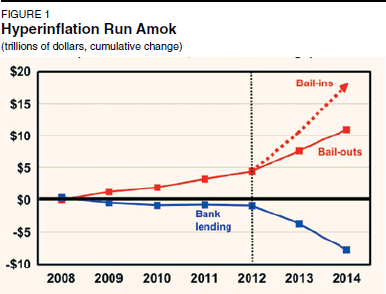Press Release
Federal Reserve Makes an Error Based on a Lie
September 2015
 |
Sept. 18, 2015 (EIRNS)—Behind the froth of the stock markets’ very negative reaction to the Federal Reserve Open Market Committee’s Sept. 17 "flinch," as it’s called, there is a relatively more fundamental problem, noted by serious economists. The Fed, and specifically Chair Janet Yellen in her "explanation," lied about its reasons for leaving short-term U.S. interest rates unchanged, now at zero for nearly seven years.
Yellen acknowledged that the FOMC members, as a body, pushed further into the future their idea of when they might raise rates, and that one of them even thought they would push the discount rate further down, into negative territory, by early 2016. But she claimed that "economic headwinds from abroad," and specifically from China’s economy, were the main reason for this.
Immediate responses came, for example, from Bremer Landesbank chief economist Folker Hellmeyer and from Reserve Bank of India Governor Raghuram Rajan: Yellen’s statement could not be true. The Fed, itself, has downgraded its projection for the U.S. economy from 3% growth this year, to 2.1%; the estimate of China’s growth has been shaved only from 7.0% to 6.9%. It is the falling U.S. economy, not China’s, which made the Fed keep Wall Street’s punchbowl full of liquidity. Hellmeyer added, in his note to clients, that the Chinese Finance Ministry had responded to the Fed: "The recovery of the U.S. economy is not stable."
An American economist told EIR that the Fed had made a serious error by claiming to have based its decision not on the state of the U.S. economy, but on forecasts, however dubious, about a foreign economy, specifically China’s. The result would be "chaos" regarding the Fed’s future decisions, and the impression that U.S. short-term rates might stay at zero indefinitely, or even go negative.
The Federal Reserve itself is at the center of the U.S. economic prostration, having created a financial and economic system based entirely on money-asset appreciation; i.e., Wall Street banks’ speculation. It may now set off a whole new round of quantitative easing spasms, by the ECB and Bank of Japan in particular, rapidly leading to trans-Atlantic financial collapse.
